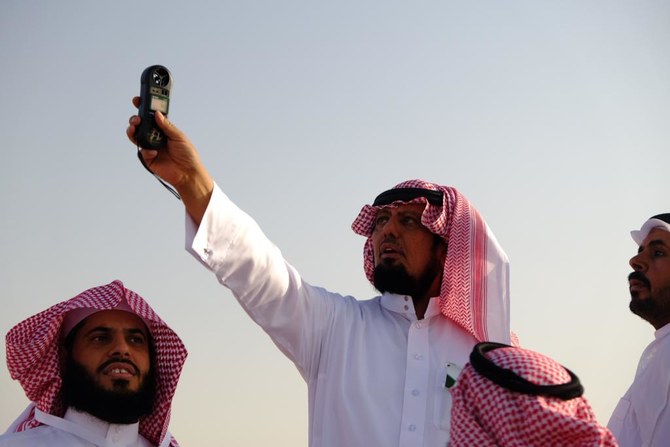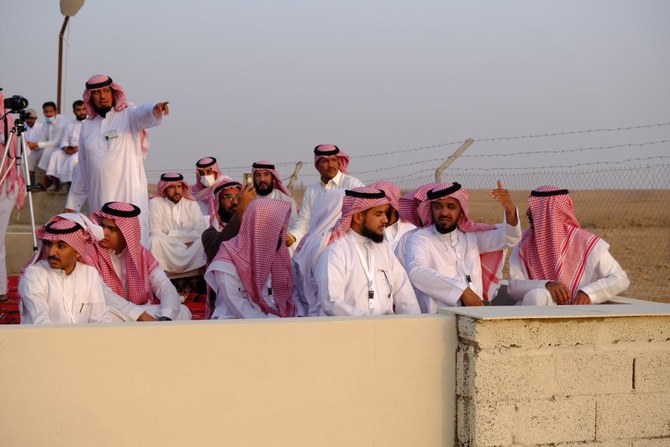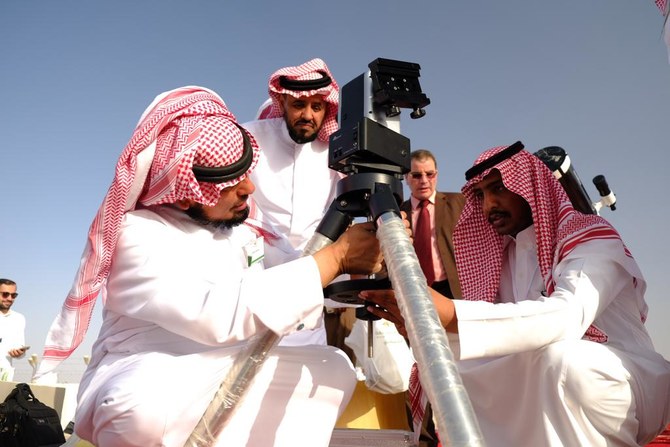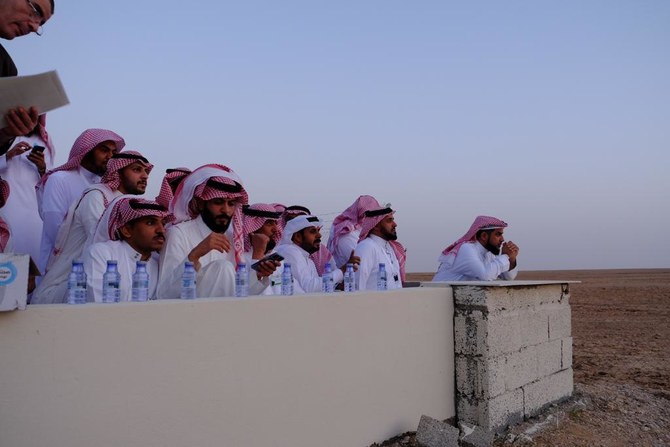RIYADH: Most of the world’s 2 billion Muslims will mark the first day of Ramadan on Saturday after an official sighting of the new crescent moon, the Saudi Supreme Court said on Friday.
The court offered congratulations on the advent of the holy month to King Salman, Crown Prince Mohammed bin Salman, all Saudi citizens and expatriates in the Kingdom, and all Muslims.
Bahrain, Kuwait, Qatar and the UAE said Ramadan would also begin there on Saturday, and in Oman it is expected to begin a day later. The starting date is determined by both lunar calculations and physical sightings of a new moon.
This will be the first year since 2019 that Ramadan in Saudi Arabia is observed without coronavirus restrictions.
The crescent signaling the start of Ramadan was sighted on Friday at Hautat Sudair in Riyadh by astronomers from Majmaah University’s Astronomy Observatory Department.
The individual who first observed it was renowned Saudi astronomer Abdullah Al-Khudairi. The head of the Observatory Department at the university, he is known among his peers for his expertise in astronomy and his role in sighting the Ramadan crescent each year.
Although advanced telescopes are in use at the site, Al-Khudairi relies on his eyes alone. His colleagues have said that his vision is extremely acute and on Friday this proved to be the case once more as he spotted the new moon before anyone else. His sighting was confirmed by others using telescopes
“It’s right in front of your eyes, can’t you see it?” he was heard saying. “In the era of the Prophet, peace be upon him, there were no devices like there are now. These are among the blessings of God that we praise and thank Him for. Sighting with the naked eye was the basis for sighting the crescent back then.”
Preparations for the sighting began early in the afternoon as advanced telescopes and cameras were set up and trained on the horizon. People gathered around to observe the methodical approach of the astronomers as they adjusted and fixed the focus of their devices.
Hautat Sudair has been the location used for the sighting the new moon for many years, Al-Khudairi told Arab News.
“This place is far from urban areas, agricultural areas, industrial areas, far from pollution,” he said. “It’s high above sea level, about 900 meters. The land is solid and not subject to excitation.
“It was chosen years ago by King Saud University after we signed a memorandum of cooperation. The region is distinguished not only for moon sighting but for all kinds of astronomical observations.”
Wind speeds were very low in the area, at about 4 kph, which significantly decreased the chance of gusts stirring up dust clouds that might obscure the view of the new moon.
After the sighting and confirmation of the crescent, the gathered astronomers congratulated each other and signed a document as witnesses to the 1443 Hijri Ramadan crescent.
The sighting of the crescent moon is an important component of Islamic astronomical ephemeris, as the Hijri calendar follows the lunar cycle, with a new crescent signaling the start of each month.
































